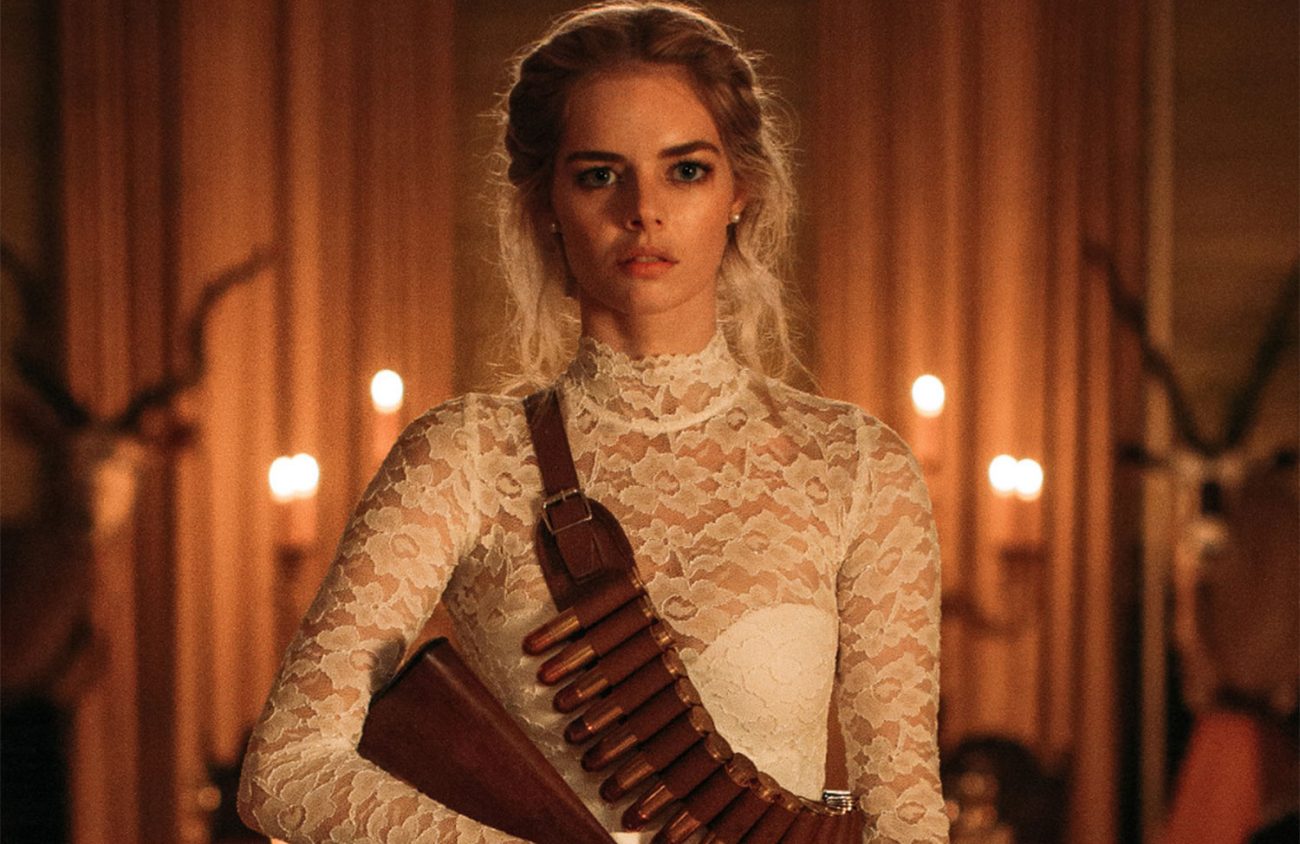The super-duper rich aren’t like you or me. They just aren’t.
The lives of those who enjoy the protections and privileges of enormous wealth are, by and large, incomprehensible and reprehensible in equal measure, which is why we continue to conceive of them — in popular art, in conspiracy theories, in our deepest suspicions — as having made a pact with the devil.
Beyond satanic soul-bargains, however, I suspect the rich have made a pact that is no less evil for being entirely mundane and earthly, and which goes something like this: I would rather die than give up one iota of what I have.
Both pacts, in fact, are wed together in Ready or Not, a rambunctious horror comedy whose supernatural premise and freewheeling gore contain a wicked kernel of social satire that, in its own slantwise way, is more effective — and a hell of a lot more fun — than a dozen “realistic” takedowns of the rich and powerful.
Co-directed by the team of Matt Bettinelli-Olpin and Tyler Gillett, and co-written by Guy Busick and Ryan Murphy, Ready or Not is a movie of and for our times — a controlled-chaos splatter fest that is at once an exposé on family dysfunction as well as a more far-reaching howl against greed’s theater of cruelty. It plays like a carnival ride, but it cuts like a knife.
Wasting little time, the film, after a brief flashback, opens on the wedding day of Grace (Samara Weaving), a working-class girl marrying into the Le Domas clan, a family of eccentrics whose abundant wealth derives from a gaming empire (think Milton-Bradley) that was established, under suspicious circumstances, by the late family patriarch.
Grace’s new husband, Alex (Mark O’Brien), seems to be only relatively normal Le Domas — though, of course, he forgets to inform Grace that, per tradition, she must draw a card and play a game in order to be established in the family.
And, of course, Grace draws the one killer card — hide-and-seek — that forces her to spend her matrimonial night fleeing as she is hunted by a vicious, coked-out and increasingly desperate family of millionaire weirdos armed with an arsenal of archaic hunting weapons, including a crossbow and a battle axe (get it?). Turns out that unless they sacrifice Grace by dawn, they will indeed die, according to the patriarch’s otherworldly bargain. Or so they all believe.
What ensues is fairly predictable, from beginning to end — a breakneck comic combination of Hostel, Rosemary’s Baby and The Most Dangerous Game — though it’s this very predictability that allows the filmmakers to work deviously inside the seams of the cliché. The writing is sharp and often bitingly funny, and the violence, though outrageous, is the opposite of gratuitous; it serves to amplify the psychic brutality that bonds the Le Domas clan together in a desperation that literally knows no bounds.
None of this would work half so well as it does were it not for Weaving, who is riveting. Neither completely helpless nor utterly heroic, her performance as the besieged bride is wonderfully calibrated between astonished outrage and aggrieved heartbreak, resolving itself in a furious fight for survival that resembles, by default, an act of righteousness. Much of the movie’s greatest pleasures derive from watching her — faltering, astonished, pissed off — confront, with growing alarm and bewilderment, the truth of her predicament.
When she says, in exasperation, “Fucking rich people,” it feels less like a curse than a benediction for all the pent-up anger of the underclass. Despite the cartoonish exterior, Ready or Not is a nasty movie, a millennial revenge fable that takes full cathartic aim at the monstrousness of our social upheaval. It’s like Fall of the House of Usher for the age of road rage.
In this sense, it’s also a surprisingly satisfying movie to experience — a whiplash funhouse ride that feels, at times, like the tantrum you won’t allow yourself to have against the evil you can’t quite reach. And perhaps that is what the genre of horror does best: It makes our amorphous fears immediately palpable, in this instance the seemingly supernal powers of the rich.
I mean, if Charles Koch was hunting you with a crossbow, you’d know what to do, right? (Broadway Metro)
